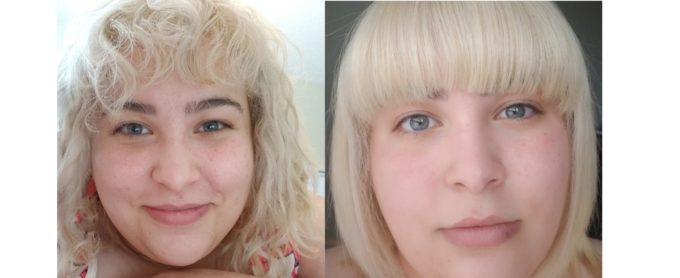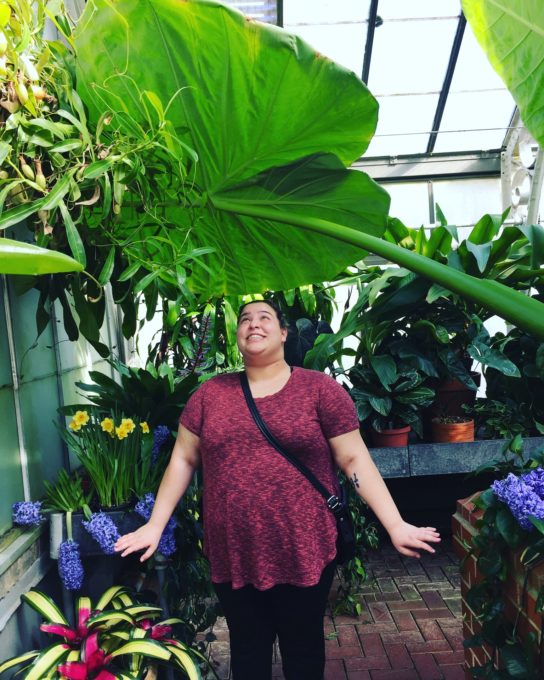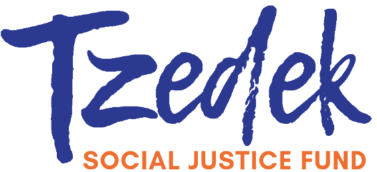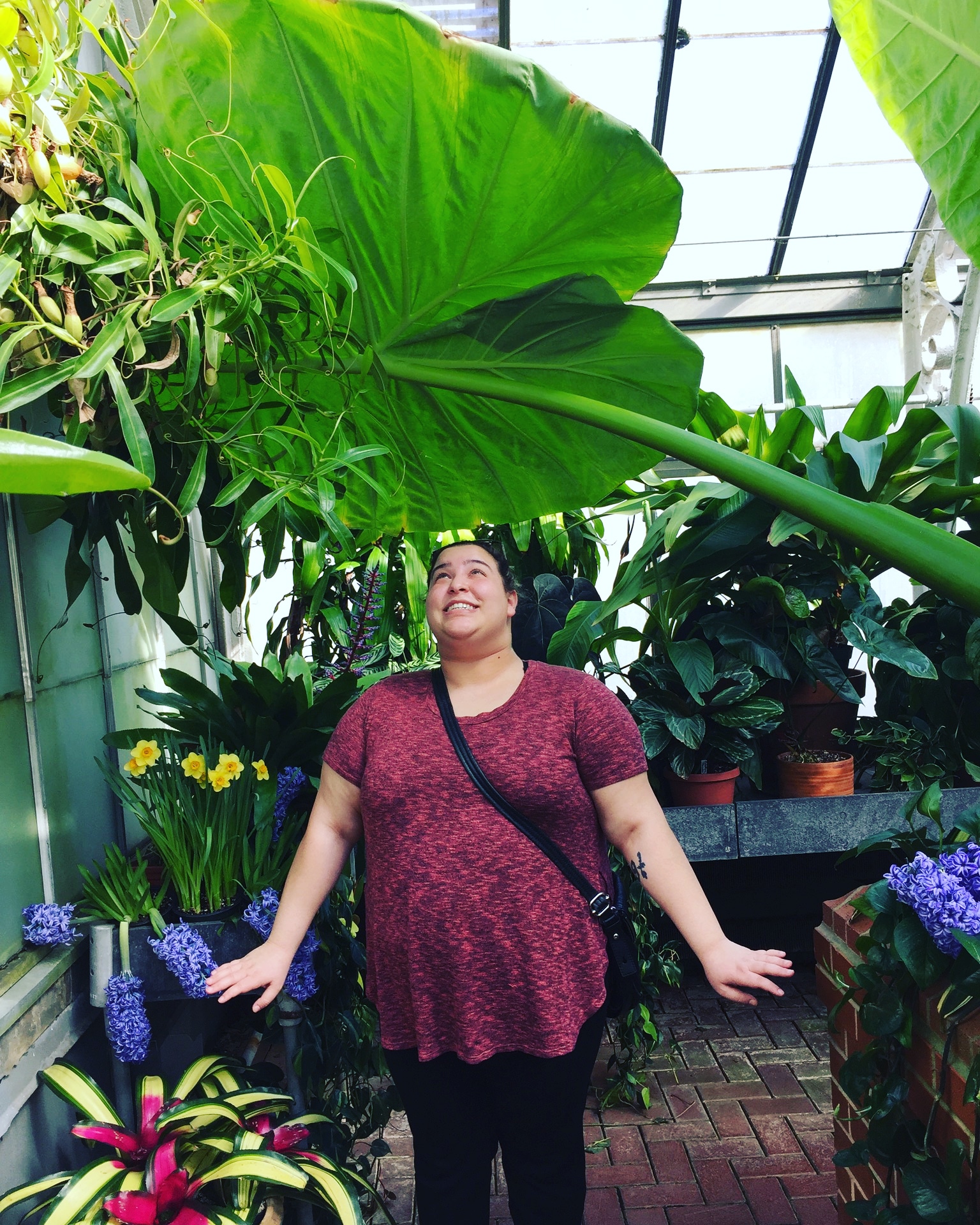Niki Maldanado is a self-described, unapologetic queer fat femme, whose passions include sex-positive education, eradicating fatphobia, and building wildly inclusive Jewish spaces. She’s also a skin care expert and founder of The Beauty Endowment, a nonprofit that distributes beauty products to femmes in need. If you’re wondering what aesthetics and social justice have to do with each other, read on…
Heather: Anyone who knows you, knows you love kids. In your capacity at the Asheville Jewish Community Center (JCC), you work on youth and young adult programs. You’re also the person who introduced me to the term “niblings,” a gender neutral terms to refer to nephews and nieces. How do you bring your social justice lens to your work with kids? What tips do you have for combatting adultism?
Niki: I love that you love niblings and that I see it used often on my social media feeds. My experience as a moderately young person who has experienced extensive trauma and therapy has taught me that age does not determine knowledge or skill. I’m queer and femme and from a Chicago suburb. I know nothing about what young folks in the South experience. To do my job well I need to acknowledge that and ask folks what they want and need. An adultist lens tells me to make assumptions based off of stereotypes–Southern people are conservative, for example–and program based on that guestimation. In reality, there are radical folks making big moves in this town, and I was lucky to meet them and chat about what they need out of their connections.
My primary goal at the JCC is growing a young Jews of Asheville group and a queer Jews of Asheville group. The folks who overlapped into both of those groups were the most influential for me. The other radical feminist young Jews who I could freely engage with over our mutual anti-Zionist politics or how we both felt Asheville is full of white moderates made me feel seen. These views were very different from other folks I worked with, and it took me some time to help advocate that being close to your Jewish identity can look like anti-Zionism. It is adultist to think you know better, or to think that young folks who are different from you are somehow wrong in their positionality.
Heather: Over the last year, you’ve focused on establishing a new nonprofit–The Beauty Endowment. Tell me about this project.
Niki: Oh dear lord, bless my heart (which I know is not the right way to use that, but it’s my version y’all)!
I became a licensed aesthetician back in 2013 and worked in the cosmetics industry for a bit. I always was astounded by the back rooms filled to the brim with samples and testers next to all the stock inventory. When I went to college in 2014, I always thought back to those rooms. Not only because I’m a self-described beauty junkie and the image calms me, but because it was just such an unnecessary hoarding of goods that could have gone to people who needed them. I felt this again as “influencers” blew up and their videos revealed PR packages that included a brand’s entire collection. When you’re sent a whole collection of, say foundations, only a few of those shades are going to match your seasonal skin tone. So seeing someone receive 30 foundations when maybe only four will be used by them was upsetting to me. It made me think they could donate the shades they would never open.
In late 2017, I was on a professional coaching call with Brianne Huntsman, and she asked me what I was excited about. I started talking about this seed of an idea–a non-profit that donates beauty goods to women of color, particularly trans and femme folks. As I was talking she stopped me to say, “This nonprofit idea you’re talking about sounds like it makes you excited, and it’s where you need to focus–not on building a new LinkedIn.” That was all it took–one kick ass friend, who is a perfectly pushy “hold you accountable” type of boss business babe.
Since then it has been a purposely slow process to build this nonprofit with integrity. All three board members are trans women, two are TWOC (trans women of color). All the back end administrative pieces are me. I am figuring this process out. Thankfully, I have had online groups and spaces to learn from other folks–including Nonprofit Happy Hour, Humans of Online Business, So you Wanna Blog, Dreamers//Doers, Thriving Nonprofit, and Boss Female Entrepreneurs (all on Facebook).
Heather: What are you learning?
The realities of non-profits are that the construction of our internal framework has been incredibly focused to make sure we try and meet as many intersections as possible. With my own non-profit, I made sure two of my three board members were trans women of color. The reality is that any non-profit will mess up and miss things. No one knows it all, and as communities grow and change how they feel respected, non-profits need to embrace the fact that all they can do is try to have good intentions with positive impact. When then doesn’t happen, acknowledge it, apologize, and grow to be better. When you welcome the pushes that make non-profit work more inclusive, it increases an organization’s integrity and positive outcomes.
For us, this shows up as our language of ‘trans femmes’ and not just trans women, as our vision to work towards body liberation where all bodies are seen as god bodies, and our values to make our practices political, like being a pro-BDS organization. People may not realize that something like a BDS movement intersects with the beauty industry. Large conglomerate companies give money to Israel, and we would choose not to partner with those brands when the time comes.
Heather: What do you hope The Beauty Endowment will be doing ten years from now?
Niki: I dream of us as a national go-to big name nonprofit, with corporate sponsorships. Plus maybe a yearly Gala, if I’m really going there. When I started explaining the idea to folks, I said, “It’s like Dress for Success for your face.” That said, I think we can be the change we want to see. We can use the collective growth of society in these heated times to the advantage of beauty. As brands realize they need to expand shade ranges for the vast array of dark skin tones, I think we could have a whole section of our organization that works with companies and PR for brands on sampling and reviews. I think as Femme folks take up more space in the world, I want us to be at the forefront of changing the narratives about beauty. That not all women want to wear makeup, that not all makeup wearers are women, and that makeup is not an essential part of existence for anyone. That being said–the goal is to have the love and passion for makeup become something without borders for any identity. I want to see a world where beauty lovers can find products they love, in the right shade, at a price point that works for them in stores. I want to see this nonprofit thrive in offering that same level of universal access to folks who can’t buy items they want or need. I want us to have trainings for makeup artists on equity and inclusion and then promote those folks who are making their job a safer space.

Heather: Skin care and aesthetics are often seen as luxuries, part of toxic beauty culture. Yet you approach skin care as a sacred practice of self care. Can you share how you approach aesthetics?
Niki: As a fat femme with a lot of personality, I’m exactly what toxic beauty culture will never claim as one of their own. I’m not granted access to the club of beautiful people. It is through that exclusion that I came to aesthetics. I wanted to fit in, but as I got older and wiser, I knew to say “Fuck that world, who doesn’t even want me?” and to create spaces of my own. I have acne, combination skin, hyperhidrosis (my face sweats), and a beard. Toxic beauty culture says I’m supposed to be trying to cover all those things because they are flaws. In reality, all of that makes me more human and relatable in my work.
Heather: In so many social justice-centered spaces I’m in, fatphobia and body shaming remains an acceptable. It seems that for all of our unpacking of privilege, pretty privilege, in Janet Mock’s words, is taken for granted. How do you see fatphobia play out in your world?
Niki: Fatphobia is a whole world of systemic oppression that has not hit the main stage of society yet. Fatphobia is diet culture. Fatphobia is photo-based dating sites. Fatphobia is systemic inaccess to clothing that is size inclusive and offered in ALL types of styles. Not all fat girls want a floral A-line dress. Fatphobia is airplane seats sized for a Barbie doll. I could go on and on. Ultimately, fatphobia is often traceable to capitalism–and people capitalizing off of that are not going to end any system that makes them money.
In social justice spaces, fatphobia is one of the few areas people still feel righteous in their harmful beliefs, words, and actions. I have never experienced an office culture that explicitly states diet talk is not okay. I can tell coworkers I will not engage in diet talk or talk about food or “health” and have that boundary crossed every single day. “You fat [insert expletive]” is the first insult men throw at me when I challenge them. Every time.
Heather: What body positive heroes are inspiring you these days? What should we be reading? Who should we be following on social media?
Niki: Follow anyone who is inspiring you in a healthy way or making you feel like you are valid and seen in the world. I unfollow anything with bad politics or that makes me feel bad about myself. I do tend to gravitate towards visibly fat folks, queer folks, and other white Latinx folks because those are also my intersections.
Makeup Artist Katie Jane Hughes (@katiejanehughes) is my favorite for her aesthetic, and not a political or fat person–just solid ass makeup that is not “instagrammy.” Insta accounts @phat_girl_fresh, @simonemariposa, @anactingangel, @saucyewest, @themarcyminute, @queerfatfemme, @Chr1styHarrison (who is an anti-diet dietitian). I have not found many small chested visible fat folks, so maybe just follow me if you want that? Lol
Here’s some books to check out: Things No One Will Tell Fat Girls by Jes Baker and The Body Is Not an Apology: The Power of Radical Self-Love by Sonya Renee Taylor.

To keep up with Niki’s work on The Beauty Endowment, follow them on Instagram or Facebook.

